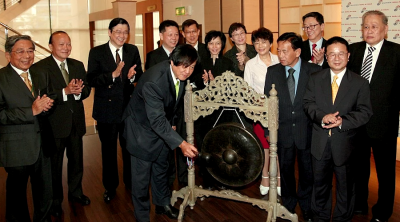
The latest possible election date for Penang is October 1, although it maybe held before then.
Perikatan Nasional (PN) is approaching the coming six state elections aggressively. PN will hold Kelantan and Terengganu. It will consolidate Kedah even further, and have some show in Negeri Sembilan.
Selangor will be a battle royale, with Pakatan Harapan and Umno expected to win with a reduced majority.
PN is hoping that the “green wave” will prevail in the coming state elections. However, Penang will be a very different case, with a number of other factors that will influence the results.
Back in the 2008 electoral tsunami, the then Pakatan Rakyat opposition swept to power by winning 29 out of 40 seats in the Penang legislative assembly.
The Lim Guan Eng-led opposition routed the Barisan Nasional which lost 27 seats. Gerakan, MCA and MIC were completely wiped out. Umno was left with 11 seats to become the opposition.
In 2018, Pakatan Harapan consolidated its hold by winning 37 seats in the legislative assembly, losing four after the Sheraton Putsch in February 2020.
PH goes into the coming election with 35 seats (including two from Umno).
PAS has just one seat (Kepala Batas) in the current legislative assembly. There are also four vacant seats (Bertam, Seberang Jaya, Sungai Acheh and Telok Bahang) with the Speaker exercising his power under the Penang anti-hoping law.
Penang is a DAP citadel
Penang’s 1.7 million inhabitants are both ageing and shrinking.
Penang was traditionally thought of as a Chinese-dominated state, but now the Malay and Chinese populations are fairly even at 40 percent each, with the Indian community contributing 10 percent.
On Penang Island, there are 18 seats which are primarily Chinese-dominated with the exceptions of Bayan Lepas, Pulau Betong, Telok Bahang and Batu Muang.
Most of the Chinese-dominated seats are held by DAP or PKR with massive majorities and are extremely safe.
Seats like Bukit Tambun, Bukit Tengah and Perai have high Indian populations, and could be swayed by any changing trends in the Indian vote.
On the mainland, there are 22 seats which are Malay-dominated, except Bagan Jermal, Bagan Dalam, Perai, Padang Lalang, Berapit and Jawi.
Thus, it can be expected that DAP and PKR will almost certainly hold onto 26 seats at a minimum. PAS will hold onto Penaga in the northern part of the mainland, and PN should pick up Permatang Pasir, Beragan, Sungai Acheh and have a very good chance in Bayan Lepas and Telok Bahang, giving the PN six seats.
That leaves eight seats which are too hard to call. These include Bertam, Pinang Tunggal, Sungai Dua, Telok Ayer Tawar, Seberang Jaya, Peranti, Sungai Bakap and Pulau Betong.
Even if PH doesn’t win any of these tight seats, they can still form a government with a simple majority. However, if PN can win them, that would give it an opposition of up to 14 seats in the new legislative assembly.
Potential surprises
The recent arrest of Muhyiddin Yassin on corruption charges could create an “Abah effect,” something similar to what was seen with Najib Razak in the Johor state election last year. If this effect eventuates, then PN may perform much better in the tight seats.
If the Indian vote either turns against PH or fails to turn out to vote, this could disadvantage PH.
Gerakan is planning to contest three seats they held up to the 2008 state election, including Pantai Jerejak, Batu Uban and Batu Muang.
With a moderate percentage of Chinese voters in each seat, Gerakan is likely to be punished for collaborating with PN, (the opposite side to the “Abah effect”).
Other issues
Voters are sophisticated in Penang and have a clear understanding of state verses federal issues.
Penang has been run reasonably, but there is some grassroots pushback against what is sometimes perceived as arrogance by the state administration.
We will only know how strong these feelings are with the results on election night.
In this state election, it’s DAP that will prop-up PKR, which is going through a patch of unpopularity at this time. This will be a strong message to prime minister Anwar Ibrahim as to the importance of DAP in supporting his administration.
34 seats will be a massive win for PH in Penang. 26 seats will be a disappointment. Likewise, six seats for PN should be expected, but 14 seats should give credence to the “green wave” factor.
Penang will be an interesting state to watch.
(Murray Hunter has been involved in Asia-Pacific business for the last 40 years as an entrepreneur, consultant, academic and researcher. He was an associate professor at Universiti Malaysia Perlis.)
ADVERTISEMENT
ADVERTISEMENT








































